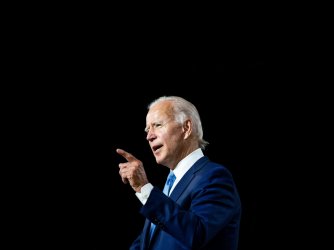Table of Contents
FIRE Officially Comments on Tufts’ Draft Free Speech Declaration
Since last year, FIRE has been fighting a protracted battle for liberty at Tufts University after the school found a conservative student publication, The Primary Source, guilty of "harassment" for publishing two articles: the first, a satire of affirmative action, and the second, a satirical advertisement ridiculing Tufts' "Islamic Awareness Week." While the university overturned its original punishment of the publication, the bogus "harassment" finding remains—earning Tufts a place on FIRE's Red Alert list of the "worst of the worst" campuses in the country when it comes to defending individual rights.
While Tufts President Lawrence Bacow undoubtedly would have liked the controversy to simply fade away, the manifest injustice of the finding and the widespread condemnation of Tufts' actions in this case prompted the university to try to find a way out of this mess other than the logical way of simply revoking the harassment finding and allowing free expression to continue at Tufts. To this end, in January of this year President Bacow announced the formation of a "Task Force on Freedom of Expression" to "draft a university-wide policy statement on freedom of expression that will guide the development of more specific policies and procedures across Tufts."
Last month, the results came in, and they are mixed at best. The task force has created a Draft Declaration on Freedom of Expression and Inquiry at Tufts University that has some nice words to say about free expression but also has some very serious drawbacks that threaten to undermine any commitment to free speech that Tufts intends to make. In answer to the task force's call for comments on the draft Declaration, FIRE has produced a comprehensive critique of the document that should be required reading for anyone who cares about free expression at Tufts. FIRE's main concern with the draft Declaration comes down to the fact that it fails to inspire students or faculty to believe in freedom of expression. As we wrote in the comment:
The draft Declaration on Freedom of Expression and Inquiry at Tufts University fails to inspire students and faculty members to value freedom of expression on campus. While the first two paragraphs discuss the importance of free inquiry at Tufts, the remainder of the document is dedicated to exceptions to free expression and the university's role in regulating speech on its campus in order to protect values such as "dignity," "respect," "tolerance," and "civil dialogue." Taken as a whole, the draft Declaration sends the message that while Tufts would like to have free expression and inquiry on its campus, anyone wanting to engage in such activities will be subject to a number of vague and confusing regulations.
Rather than being a broad statement about the value of free inquiry on campus, the draft Declaration appears squeamish about First Amendment principles. The draft Declaration would subject Tufts community members to much more stringent regulations on expression than would ever be permissible on public campuses. It sends the message that the university is no longer prepared to cope with the challenges that come with unfettered expression, and it raises the question of why Tufts believes that it cannot succeed in its mission while meeting the same standards for freedom of expression by which public universities must abide.
We then discuss more specifically why the draft Declaration will fail in its purpose if it is not altered. Our concerns include the fact that the document fails to get administrators out of the business of censorship, appears partly to be based on the questionable legal doctrine of "fighting words," and fails to consider what "harassment" and "intimidation" mean in the context of higher education.
What it comes down to is this: for 150 years Tufts has held itself out and been successful as an institution dedicated to free expression and inquiry. The draft Declaration would change that tradition for the worse. Is all of this really necessary, simply because some students were offended by a couple of satires in a student-run opinion newspaper? There is no reason in the world that Tufts cannot go its next 150 years while making the same commitment to free expression that it did for its first century and a half. Tufts would do well to consider this and take a close look at FIRE's comment when considering what changes to make to the draft Declaration.
Recent Articles
FIRE’s award-winning Newsdesk covers the free speech news you need to stay informed.

TikTok legislation sets grave precedent for free speech

FIRE joins animal advocates, free speech groups urging Ninth Circuit to affirm ruling that allows undercover audio recording

Louisiana Tech earns top rating for free speech
